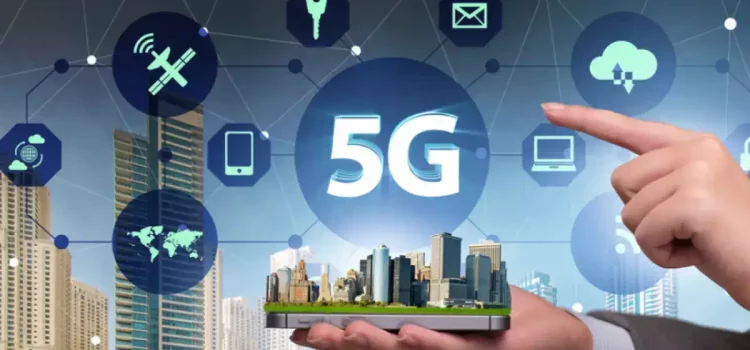
Introduction to 5G Technology

The advent of 5G technology marks a significant milestone in the evolution of internet connectivity. One of the most notable impacts of 5G on internet speed and connectivity is its ability to deliver unprecedented levels of data transfer rates, which are crucial for modern applications. The increased speed of 5G enhances user experience by providing faster access to information, smoother streaming services, and more reliable connections, even in densely populated areas. This leap in technology promises to revolutionize the way we interact with the digital world, making it more efficient and enjoyable.
Comparison of 4G and 5G Speeds
When comparing the speeds of 4G and 5G, the difference is striking. 5G on internet speed is up to 100 times faster than 4G, allowing for near-instantaneous data transfer and significantly quicker download and upload times. This dramatic increase in speed opens up new possibilities for applications that were previously limited by the slower speeds of 4G. Additionally, 5G on internet speed reduces latency significantly, which is the delay before a transfer of data begins following an instruction for its transfer. Lower latency means that actions and commands are executed more quickly, enhancing the overall user experience and enabling more responsive applications.
Impact on Download and Upload Rates
The impact of 5G on internet speed significantly boosts download rates, allowing users to download large files, such as high-definition movies or software updates, in a fraction of the time it would take with 4G. This improvement is particularly beneficial for businesses and individuals who rely on fast internet speeds for their daily operations. Similarly, 5G on internet speed dramatically improves upload rates, making it easier and faster to share large files, upload videos, and conduct video conferencing without interruptions or delays. This enhanced capability is crucial for the growing demand for high-quality, real-time communication and data sharing.
Latency Reduction with 5G
One of the most significant advantages of 5G on internet speed is its ultra-low latency, which enhances real-time applications such as virtual reality (VR), augmented reality (AR), and telemedicine. These applications require instantaneous data transfer to function effectively, and 5G’s low latency makes this possible. Moreover, 5G on internet speed reduces lag, which is especially important for online gaming experiences. Gamers can enjoy smoother, more responsive gameplay with fewer disruptions, leading to a more immersive and enjoyable experience.
Enhanced Streaming and Gaming Experience

With 5G on internet speed, latency for streaming is greatly reduced, resulting in higher quality video playback with minimal buffering. This enhancement is particularly beneficial for streaming services that offer high-definition and 4K content, as users can enjoy a seamless viewing experience. Additionally, 5G on internet speed enhances real-time multiplayer gaming by providing faster and more stable connections. This improvement allows gamers to engage in competitive play without the frustration of lag or disconnections, thus elevating the overall gaming experience.
5G and IoT Connectivity
The impact of 5G on internet speed for IoT (Internet of Things) devices is profound. IoT devices, which include smart home appliances, wearable technology, and industrial sensors, require reliable and fast internet connections to function optimally. Enhanced 5G on internet speed ensures seamless IoT connectivity, allowing these devices to communicate and operate more efficiently. This improved connectivity is essential for the development of smart homes, smart cities, and other IoT-driven innovations that rely on real-time data exchange.
Challenges in Implementing 5G
Despite its numerous advantages, there are challenges in implementing 5G technology. Interference issues affecting 5G on internet speed can arise due to the higher frequency bands used by 5G networks, which are more susceptible to obstacles such as buildings and trees. These interference issues can impact the overall performance and reliability of 5G connections. Additionally, the infrastructure costs for 5G on internet speed are substantial. Deploying 5G networks requires significant investment in new hardware, such as small cell towers and fiber-optic cables, which can be a barrier to widespread adoption.
Future Prospects of 5G Internet Speed

Looking ahead, the future prospects of 5G internet speed are promising. Enhanced real-time communication with 5G on internet speed will enable new applications and services that were previously unimaginable, such as remote surgery, autonomous vehicles, and advanced robotics. These innovations have the potential to transform various industries and improve quality of life. Furthermore, revolutionizing smart cities via 5G on internet speed will lead to more efficient and sustainable urban environments. Smart cities will benefit from improved traffic management, energy efficiency, and public safety, all powered by the high-speed, low-latency capabilities of 5G.
Conclusion:
In conclusion, the introduction of 5G technology brings about a significant enhancement in internet speed and connectivity, offering numerous benefits and opportunities for both individuals and industries. While there are challenges to overcome, the potential of 5G to revolutionize communication, entertainment, and the IoT landscape is undeniable.










